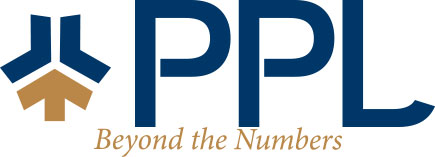Owning a business requires you to pay attention to the details. It is your responsibility to ensure your company is compliant with all applicable federal and state filing requirements. 1099 forms are used by companies to tell the IRS when you pay an independent contractor or another self-employed person. And although it may sound simple, there are a few things to keep in mind when dealing with 1099 forms. To help, we’ve provided some key points to consider.
Before paying any vendor, you should require a completed W-9 form. You should issue a 1099 to vendors you paid $600 or more for services provided. You do not have to issue 1099s to most corporations (C-corporations, S-corporations, or Exempt/Nonprofit corporations). The vendor’s designation as a corporate entity is listed on the W-9 they provide. If the payee is a lawyer or a law firm or is a healthcare provider, you must issue a 1099 regardless of their entity type, provided you paid $600 or more.
1099s are due by January 31 of the year following the year in which payments were made. It is, therefore, advisable to maintain cumulative records throughout the year for each vendor.
Let’s take a closer look at the ins and outs of 1099s.
What is a 1099?
A 1099 is a form you use to tell the Internal Revenue Service whenever your business has paid an independent contractor or another self-employed person. The payer fills out the 1099 form and sends copies to you and the IRS.
Are there any changes for the 2020 tax year?
- Traditionally, non-employee compensation has been reported on Form 1099-MISC.
- Beginning with the 2020 tax year, the IRS will require business taxpayers to report non-employee compensation on the new Form 1099-NEC instead of on Form 1099-MISC.
- 1099-NEC is not replacing 1099-MISC. It is an additional form you may need to file.
What are some best practices with 1099s?
- It is a best practice and PPL’s recommendation that you require a Form W-9 before issuing payment to vendors performing services for your business. From our experience, waiting until January to request W-9s from your vendors is difficult and often results in a failure to file Forms 1096 and 1099 correctly.
- However, if you did not require a completed W-9 before issuing payment to a vendor, NOW is the time to begin collecting them so that you can file timely come January.
- Form W-9 is your proof the information reported on Form 1099 is correct as represented to you. It is also your proof that a 1099 may not be required based on the vendor’s tax structure, as is the case with C-corporation and S-corporation vendors.
- Please do not take a vendor’s word that they are exempt!
Where do I get a 1099 form?
- We’re here for you! PPL can process and file your 1099s for you.
- Paper forms can be found at many stores such as Office Depot, Staples, Walmart or your local post office.
- Electronic forms are available for downloading directly from the IRS website or with the Social Security Administration through its Business Services Online portal.
What information do I need from my vendors?
You will need a completed W-9 filled out with the following information:
- Legal business name
- Address
- Organization type
- Tax ID: EIN
What are the reasons I may incur penalties?
- Failure to file timely
- Failure to include all information required
- Failure to file electronically when required
- Providing incorrect information such as EIN number
- Failure to file machine-readable paper forms
- Penalties can range anywhere from $50 – $280 Per 1099 form
PPL CPA is here to help you with all your financial needs. Reach out to our team of professionals so we can make 1099s easy for you!

